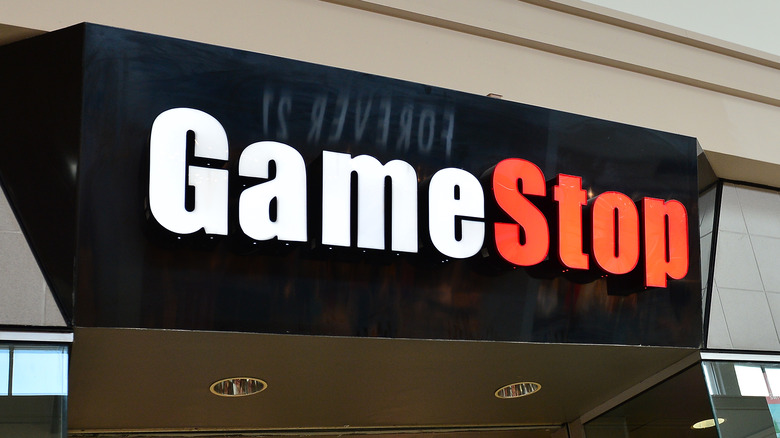Things Still Aren't Looking Good For GameStop
These are dark days for GameStop, the video game retailer that was once a dominant force in the market. In an era where cloud gaming and digital releases are becoming the new normal, it's even harder for GameStop to remain relevant.
In an aggressive move to rescue the brand from following in the footsteps of Blockbuster, Ryan Cohen of GameStop stockholder RC Ventures reached out to the board of directors with some major requests. In the letter he wrote, he urged the company to pivot its focus from physical stores to something of a digital provider. The gaming industry is booming, yet GameStop has seen significant losses. As such, Cohen emphasized the need to consolidate, suggesting that "duplicative, underperforming stores" should close their doors for good. While the company's online sales have improved throughout the COVID-19 pandemic, he doesn't feel optimistic about its current direction.
GameStop has tried pivoting before. In 2015, the company began a new retro game initiative that was full of problems. Unfortunately, this wasn't enough to push the company out of the red. While the writing has been on the wall for a while, the last year has been particularly rough on the gaming retailer. The 2019 holiday season was a major disappointment, with a 27.5% drop in profits from 2018. GameStop CEO George Sherman placed the blame on next-gen console timing instead of reassessing the company's strategy.
Things only continued to get worse. In March 2020, GameStop remained open despite ordered closures for non-essential businesses. This was not a great look for a company that has already struggled with its public image. The move to stay open was so poorly received that GameStop had no choice but to close with other non-essential businesses. Of course, the timing was problematic for an already struggling company, but this callous move only further harmed public opinion. During the forced shutdown, GameStop added another 300 stores to its growing list of permanent closures.
At this point, the future looks very bleak for GameStop. Even Reggie Fils-Aime, the beloved former Nintendo of America President who joined the retailer's board of directors, likely can't save this ship from sinking. With all that is changing and evolving in the video game industry, gamers may not see GameStop stores for much longer. Considering some of the company's questionable practices in the past, many players may not even miss the retail chain if it disappears.

